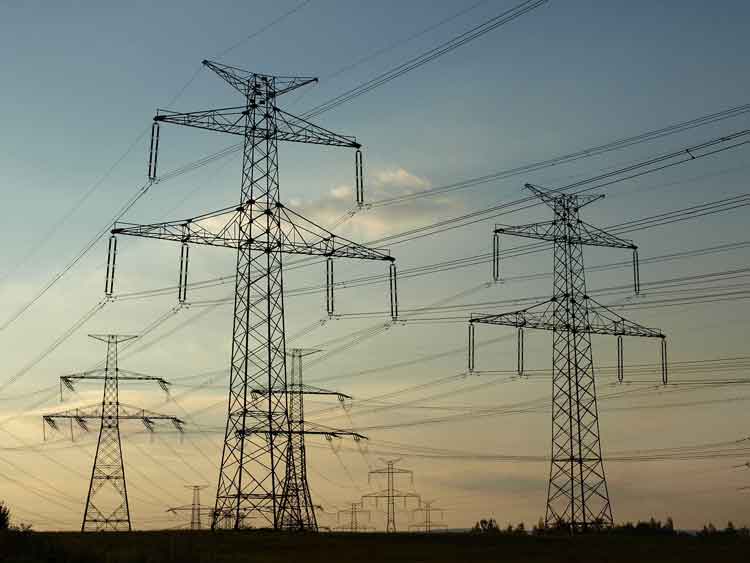1.5 Million for power research at the University of Manitoba
WINNIPEG, MANITOBA - President of the Treasury Board and Minister Responsible for the Canadian Wheat Board, on behalf of David L. Emerson, Minister of Industry, announced an investment of $1.5 million over five years for two new NSERC Industrial Research Chairs in the Faculty of Engineering at the University of Manitoba. Manitoba Hydro is also sponsoring both chairs.
The chairs will focus on such diverse topics as the simulation of power generation and distribution problems, the integration of alternative energy into power grids, the development of modelling techniques, the design of turbines for small fast-flowing rivers, icing on wind turbines and the assessment of biomass digesters for cold climates.
"Energy production is a vital sector of the Canadian economy and we have to remain innovative in creating more efficient and environmentally friendly systems of power generation," said Minister Emerson. "These Industrial Research Chairs will provide the foundation of new knowledge that will provide benefits both at the national and international level."
"The University of Manitoba and its partners in the power industry have an excellent track record in collaborating for the benefit of the Manitoban economy and society," said Minister Alcock. "The creation of these two new Industrial Research Chairs, under the direction of Drs. Gole and Bibeau, re-emphasizes the Government of Canada's commitment to innovative research in these areas."
Dr. Aniruddha Gole, an internationally recognized expert in simulation studies, will focus on the development of computer simulation methods for energy generation, transmission, distribution and utilization.
Joining Manitoba Hydro in sponsoring this initiative are Winnipeg-based Manitoba HVDC Research Centre, a leader in power system research and technology; RTDS Technologies, a high profile Manitoba-based company continuing to develop the Real Time Digital Simulator; and Teshmont Consultants, an international leader in high voltage transmission. All partners will contribute direct funding, along with significant in-kind resources for both the research and the dissemination of results.
"This Chair is synergistically partnering with these institutions in improving the technology base in this area. The Chair program will help these industries maintain their international competitiveness and also lead to improved designs and operating procedures for power utilities," said Dr. Gole, adding that the Chair will also be of significant importance in training highly qualified personnel for the Canadian power industry.
A second industrial chair, sponsored by Manitoba Hydro alone, will be held by Dr. Eric Bibeau, who will apply mathematical tools and models to develop new options for the generation of alternative energy.
"This is a tremendous opportunity provided by Manitoba Hydro and NSERC to do research in how to convert distributed sources of energy into heat and power. The enormous challenge is to find ways to utilize sources such as fast flowing rivers that have no elevation change, and to invent and develop new, scaled-down energy systems that can utilize distributed biomass residues and agricultural wastes," said Dr. Bibeau. "This is not a simple matter, as power generation costs must be the same as for large-scale systems that benefit from economies of scale."
Dr. Tom Brzustowski, President of NSERC, added, "The two chairs are building innovative research and training programs in several new areas of energy generation that are particularly important to Canada. The University of Manitoba program offers a remarkable research and education opportunity for participating students."
"The University is extremely proud of the accomplishments of Dr. Gole and Dr. Bibeau," said Dr. Emoke Szathmary, president of the University of Manitoba. "As the global demand for energy increases, these two researchers have the opportunity to make a difference in how the world produces and consumes energy."
Science and Engineering Research Canada (NSERC) is a key federal agency investing in people, discovery and innovation. It supports both basic university research through research grants, and project research through partnerships among postsecondary institutions, government and the private sector, as well as the advanced training of highly qualified people.
Related News

Group of premiers band together to develop nuclear reactor technology
TORONTO - The premiers of Ontario, Saskatchewan and New Brunswick have committed to collaborate on developing nuclear reactor technology in Canada.
Doug Ford, Scott Moe and Blaine Higgs made the announcement and signed a memorandum of understanding on Sunday in advance of a meeting of all the premiers.
They will be working on the research, development and building of small modular reactors as a way to help their individual provinces reduce carbon emissions and move away from non-renewable energy sources like coal.
Small modular reactors are easy to construct, are safer than large reactors and are regarded as cleaner energy than coal, the…




